Positive Periods
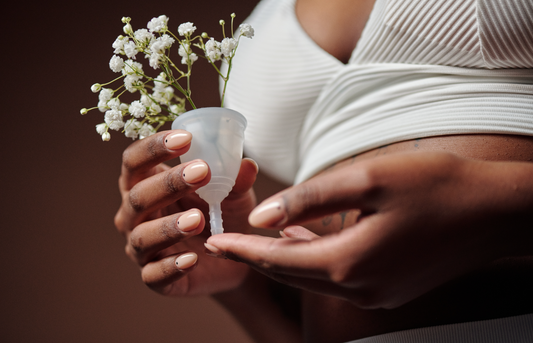
How I learned to love menstrual cups and reusables
“Yuck,” would have been my response if you had told me I was going to write an article about non-disposable ways of coping with periods three years ago. But that was before JUNO… Cloth nappies were an obvious choice for me and I’ve been happily smug and mightily fond of them through two children. But washable sanitary towels? Definitely not my bag, or even ever in my experience. Most importantly to my outlook, I didn’t know anybody who did such things. Only during a phone call I made to Mooncup when working for JUNO, seeking advertising for the very first issue, did my curiosity overcome my distaste for all this. A while later an approximately 5cm long clear rubbery cup arrived through the post. Several months later I summoned the courage to try it, with a feeling reminiscent of the first time I tried tampons as an unconfident teenager. Shortly...
How I learned to love menstrual cups and reusables
“Yuck,” would have been my response if you had told me I was going to write an article about non-disposable ways of coping with periods three years ago. But that...
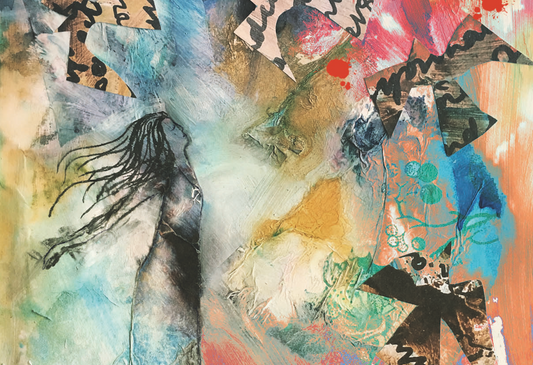
How to empower girls ready for their first period
During the early years of children’s life, there are simple things parents can do to make later explanations of puberty and menstruation much easier – for example having a relaxed and natural attitude to the human body. If parents feel comfortable with an open bathroom and toilet door, young children will already know what is normal in an adult body, and they also witness period blood. It is helpful to call body parts by their real names right from when children are toddlers and these words are first needed. If we avoid words such as penis, vagina and breasts and replace them with child-like terms such as ‘doodle’, then the real word and the body part may later seem rude, secretive, bad, shameful, or a prompt for sniggering. Describing periods in a creative way can assist in normalising body processes and still hold younger children within their innocent stage of...
How to empower girls ready for their first period
During the early years of children’s life, there are simple things parents can do to make later explanations of puberty and menstruation much easier – for example having a relaxed...
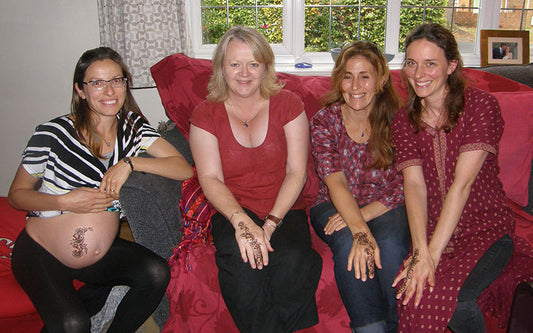
Creating a retrospective menarche celebration
When I was aged 37 I hosted and participated in a retrospective menarche celebration. Although it had been over 20 years since my periods had started, I had been reading about the wisdom of the menstrual cycle and decided it was time to honour it. I invited some close friends to join me; we represented a range of women’s life stages, including pregnancy, post-natal, perimenopause and menopause. I created a Red Tent with red, pink and purple fabrics and cushions and a circular centrepiece that represented the cycle. This was decorated with natural objects to create a mandala. We all wore something red to symbolise our shared womanhood. We started with introductions, and then shared the way we had prepared for menarche (if at all), what we remembered about it, and how that had affected our relationship with our cycle. We brought photographs of ourselves at the time of menarche...
Creating a retrospective menarche celebration
When I was aged 37 I hosted and participated in a retrospective menarche celebration. Although it had been over 20 years since my periods had started, I had been reading...
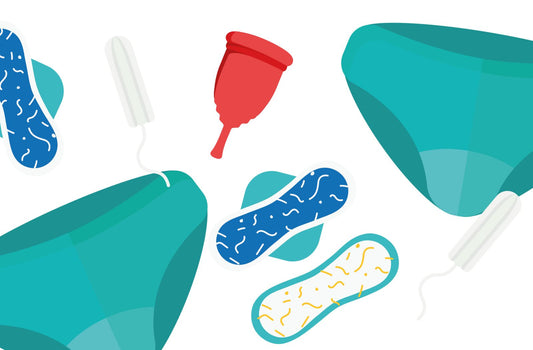
Rethinking periods: removing taboos and making ...
Jasmine Tribe explains why education is key to removing taboos and empowering people to make sustainable period choices As our understanding of the climate and ecological emergencies grows, more and more community groups, charities and individuals are working to equip younger generations to live sustainably. Education that explores nature connection, body literacy, emotional intelligence, mindfulness, compassion and inclusivity, personal and community empowerment and global issues, has a crucial role to play in our journey to creating a new way of living together. With a challenge of this scale, it’s crucial that we understand the causes of our unsustainable behaviours, which are largely rooted in social injustice and inequality. In 2017, a coalition of scientists, economists, policymakers, researchers, and businesspeople published Project Drawdown, which ranked the top 80 ways to tackle climate change. Many people were surprised to see that number 6 on the list was “Educating Girls”, and number 7 was...
Rethinking periods: removing taboos and making better choices
Jasmine Tribe explains why education is key to removing taboos and empowering people to make sustainable period choices As our understanding of the climate and ecological emergencies grows, more and more...
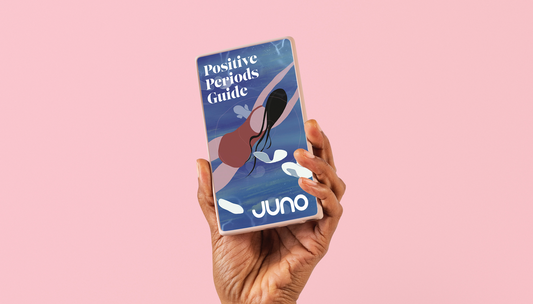
Get your copy of our FREE Positive Periods Guide
We've created a free digital Positive Periods Guide, bringing together some of our most popular content about menstruation. It's all about building a positive narrative around periods, and learning how to understand and embrace our cycles. Click here to get your copy!
Get your copy of our FREE Positive Periods Guide
We've created a free digital Positive Periods Guide, bringing together some of our most popular content about menstruation. It's all about building a positive narrative around periods, and learning how...
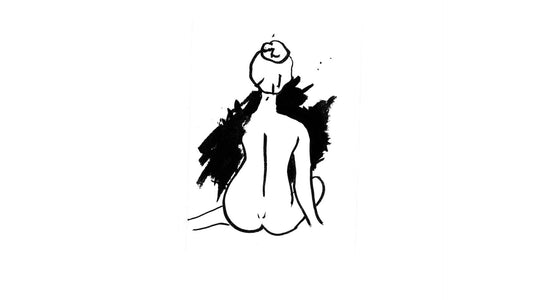
Living in flow with your menstrual cycle
Joanne Callan reflects on whether ancient wisdom and connection to our cyclical feminine nature is the solution that many of today’s stressed ‘strong women’ have been seeking Guided by ancient wisdom and led by modern-day revolutionaries, there is a new and emerging world of women daring enough to suggest that connecting to our cycles could be the key to transforming our lives. Menstruation is our superpower. In recent years, more and more women have been having this conversation: writing books, releasing podcasts, teaching workshops, organising Red Tents, sharing the knowledge that has changed their lives and the lives of the women who have been lucky enough to stumble upon their work. Can we learn to come to a deeper understanding of our cyclical nature, working with rather than against ourselves? Can we learn to live in flow and to embrace our unique and powerful feminine energies? By embracing this movement,...
Living in flow with your menstrual cycle
Joanne Callan reflects on whether ancient wisdom and connection to our cyclical feminine nature is the solution that many of today’s stressed ‘strong women’ have been seeking Guided by ancient...
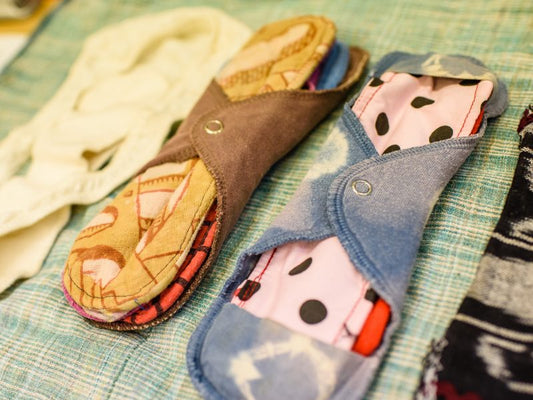
DIY: How to make your own cloth period pads
Menstruation is natural, but sometimes the way we deal with it in modern society is not. Plastic is more of an on-trend issue than ever before, so the argument surrounding the way we cope with menstruation has picked up pace. The average conventional sanitary pad contains 3.4g of plastic, so people are becoming increasingly interested in reusable methods such as washable pads and menstrual cups. These offer a safer and more natural way to manage your menstrual flow. In November 2017 I attended a workshop run by Manda Helal so that I could photograph her teaching some of the staff at the Women’s Environmental Network (WEN) in London how to make their own reusable menstrual pads. I found the whole experience quite emotive: the experience of women coming together and sewing the pads, being open about what things we do not normally discuss. The following step-by-step instructions are based on what Manda does, so you can make your own...
DIY: How to make your own cloth period pads
Menstruation is natural, but sometimes the way we deal with it in modern society is not. Plastic is more of an on-trend issue than ever before, so the argument surrounding...

